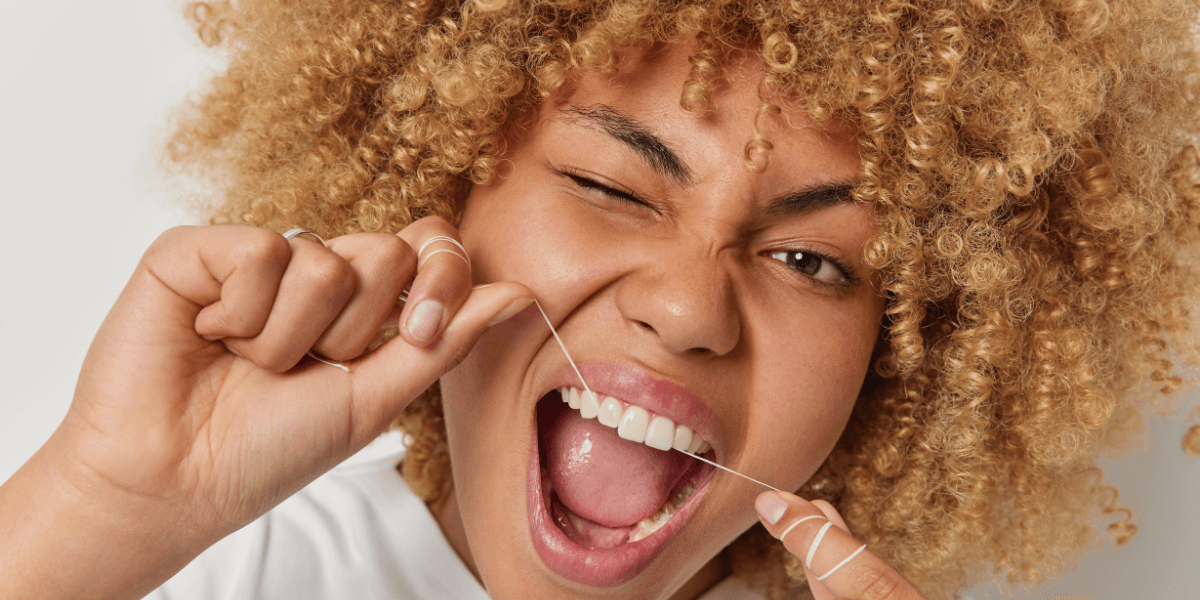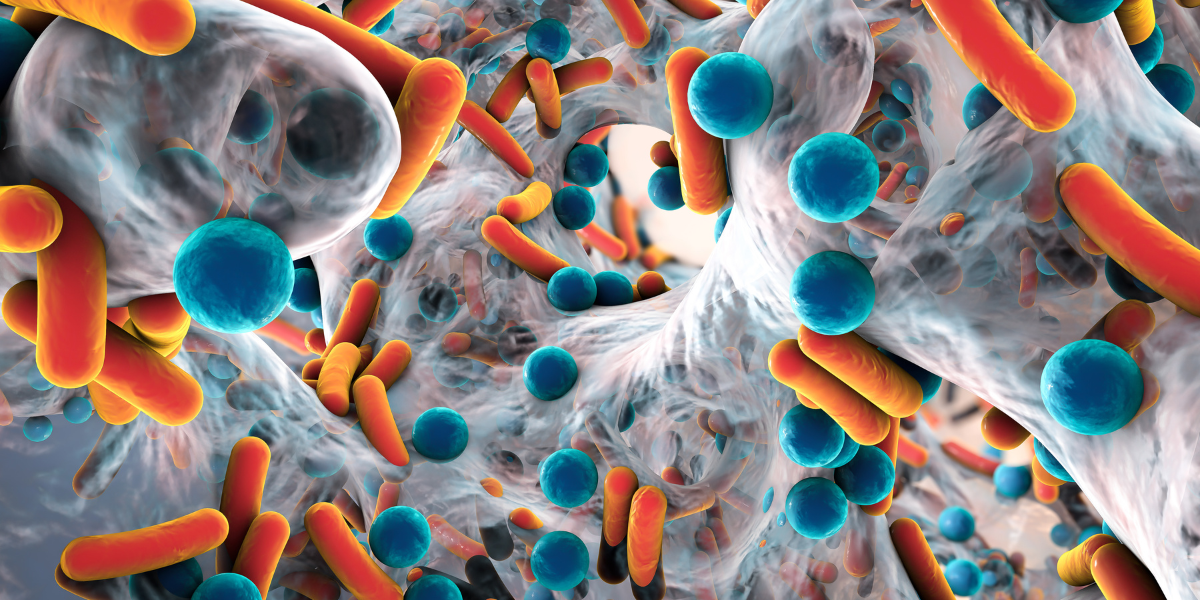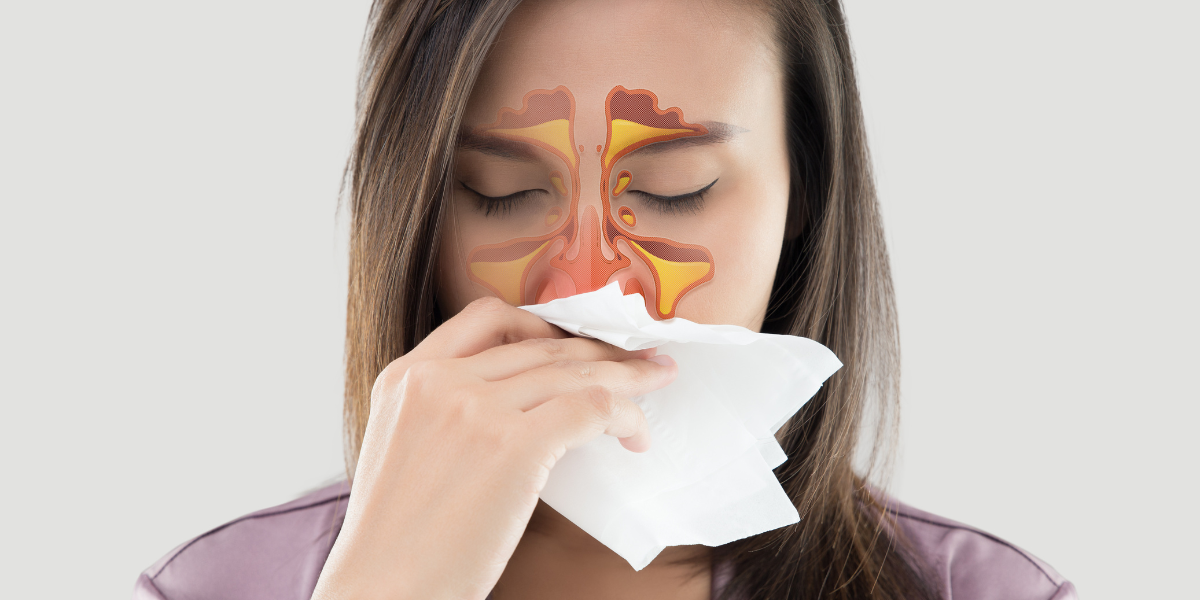What really causes morning breath & how to stop it

Morning breath is a frustrating & embarrassing condition for people that are regularly brushing & flossing but nothing seems to stop it. Learn the causes and how to get rid of it.
What causes morning breath?
Morning breath, an unpleasant odor, is caused by the build-up of bacteria in the mouth during the night and can cause anxiety and social embarrassment. When you sleep, your mouth becomes dry, and this allows bacteria to multiply. Bad breath, also known as halitosis, is a common problem that can be caused by a variety of factors, including poor dental hygiene, cavities, certain foods and drinks, smoking, and medical conditions.
Oral malodor (halitosis) is common, and 8-50% of people perceive that they have persistent, recurrent episodes of oral malodor.[1] Oral malodor typically originates directly from the oral cavity secondary to periodontitis (gum disease), tongue debris, poor oral hygiene, deep caries (cavities), inadequately fitted restorations, or endodontic lesions. [2][7] In a study that investigated salivary flow, dryness of the oral cavity is considered as one of the causes of oral malodor.[3]
Saliva influences morning breath: Why is saliva production lower at night? How mouth breathing can affect morning breath
Saliva is more than just spit! It plays an essential role in your oral health and influences your morning breath. Saliva is the mouth’s natural cleanser and helps to remove food and bacteria from the teeth and gums to keep your mouth healthy. Saliva contains enzymes that help to break down food, assists in washing away food debris and bacteria, and contains minerals that help to remineralize your teeth to prevent cavities.
The absence of saliva causes an increase in Volatile Sulfur Compounds, VSCs, and the detection of VSCs can aid in the identification of their source.[3][8] Furthermore, sleeping with your mouth open can cause more dryness in addition to what naturally occurs at night and can influence the severity of morning breath.
Other causes that affect morning breath
Poor oral hygiene
The plaque that occurs naturally can accumulate on your teeth, contributing to morning breath. Wearing dentures at night and inadequate tongue cleaning can also contribute to morning breath. Morning breath is caused by stagnation of saliva and putrefaction of entrapped food particles, an accumulation of bacteria on the tongue recognized clinically as coated tongue, and a decrease in liquid intake. [3] A coated tongue is a grayish-white deposit on the tongue and is one of the main causes of bad breath, which is a socially unacceptable condition. [4]. Tongue anatomy can also play a role in the accumulation of bacteria. For example, a fissured tongue (grooves on the top of the tongue) provides the ideal environment for bacteria to grow. According to the American Academy of Oral Medicine, a fissured tongue occurs in about 5% of the U.S. population, and men are affected slightly more commonly than women.[5]
Periodontal disease is a chronic inflammatory disease of the tissue supporting the teeth. If the gum tissue is compromised with the accumulation of pathogenic bacteria (bacteria that cause disease), it could lead to the unwanted side effect of bad breath. Halitosis is a common complaint in the population of patients affected by periodontitis.[6]
Cavities
Poor oral hygiene and consuming food and sipping drinks high in sugar throughout the day can contribute to the development of cavities.
Smoking
Smoking is a major cause of bad breath because it dries out the mouth and increases the build-up of bacteria. It also stains the teeth and leaves a lingering smell on the breath.
Food consumption
Certain foods, such as garlic, onions, and spicy foods, can cause bad breath due to their strong odors. Other foods, such as coffee and citrus fruits, can also contribute to bad breath. Prevalence of bad breath is very common in the general population, and nearly more than 50% of the general population has bad breath. [7]
ENT
Most halitosis patients seen in an ENT (Ear, Nose & Throat) practice can be localized to the tongue. [8] Volatile sulfur compounds originate mainly from the oral and nasal cavities.[9] Acute or chronic throat infections, postnasal drip, and tonsilloliths (tonsil stones) can contribute to bad breath. Tonsil stones are stones that arise as a result of calcium being deposited in conjunction with bacteria in the crevices of the tonsils.
When your head is full of mucus, either due to allergies or sickness, the mucus provides a food source for the bacteria in your mouth and throat, and this creates an environment for these bacteria to produce odors.
GI disease processes: Diabetes and GERD
Certain medical conditions, such as diabetes and gastroesophageal reflux disease (GERD) can cause bad breath due to the build-up of bacteria in the mouth or due to other factors associated with these conditions. A fishy-smelling breath is reflective of kidney problems, while fruity-smelling breath can be a sign of diabetes. Regardless of the oral conditions, a study has reported that GERD-related symptoms were associated with halitosis.[10] People with diabetes have high blood sugar levels that increase glucose levels in saliva. This provides food for bacteria in the mouth and leads to the build-up of dental plaque, contributing to bad breath and gum disease.
How to prevent morning breath?
While there’s no complete way to eliminate morning breath, there are a few things you can do to lessen the severity, such as brushing your teeth, utilizing a tongue cleaner, using mouthwash, chewing sugar-free gum, taking probiotics, and avoiding tobacco and sugary foods before bed. Antibacterial mouth rinsing agents act on halitosis-producing bacteria.[3] However, mouthwashes may only provide temporary relief, and if they contain alcohol, it can influence the severity of morning breath.
Reducing plaque buildup on the teeth and tongue will help in reducing your risk of developing cavities and morning breath. Tongue scrapers are shaped according to the anatomy of the tongue and reduce 75% of the VSCs compared to only 45% using a toothbrush.[3] Sugar-free chewing gum could be considered a therapeutic alternative to decrease or neutralize the amount of VSCs present in oral breath.[8] Morning breath can be easily treated once you know the source and the continuity of seeing your dental healthcare professional on a regular basis based on your needs.
References
- Porter, S. R., & Scully, C. (2006). Oral malodour (halitosis). BMJ (Clinical research ed.), 333(7569), 632–635. https://doi.org/10.1136/bmj.38954.631968.AE
- Suzuki, N., Fujimoto, A., Yoneda, M. et al. Resting salivary flow independently associated with oral malodor. BMC Oral Health 17, 23 (2017). https://doi.org/10.1186/s12903-016-0255-3
- Kapoor, U., Sharma, G., Juneja, M., & Nagpal, A. (2016). Halitosis: Current concepts on etiology, diagnosis and management. European journal of dentistry, 10(2), 292–300. https://doi.org/10.4103/1305-7456.178294
- Seerangaiyan, K., Jüch, F., & Winkel, E. G. (2018). Tongue coating: its characteristics and role in intra-oral halitosis and general health-a review. Journal of breath research, 12(3), 034001. https://doi.org/10.1088/1752-7163/aaa3a1
- https://www.aaom.com/fissured-tongue
- Musić, L., Par, M., Peručić, J., Badovinac, A., Plančak, D., & Puhar, I. (2021). Relationship Between Halitosis and Periodontitis: a Pilot Study. Acta stomatologica Croatica, 55(2), 198–206. https://doi.org/10.15644/asc55/2/9
- Aylıkcı, B. U., & Colak, H. (2013). Halitosis: From diagnosis to management. Journal of natural science, biology, and medicine, 4(1), 14–23. https://doi.org/10.4103/0976-9668.107255
- Krespi YP, Shrime MG, Kacker A. The relationship between oral malodor and volatile sulfur compound–producing bacteria. Otolaryngology–Head and Neck Surgery. 2006;135(5):671-676. doi:10.1016/j.otohns.2005.09.036
- MK Nakhleh,M Quatredeniers,H Haick. Detection of halitosis in breath: Between the past, present, and future. First published: 16 June 2017 https://doi.org/10.1111/odi.12699
- Struch, F., Schwahn, C., Wallaschofski, H., Grabe, H. J., Völzke, H., Lerch, M. M., Meisel, P., & Kocher, T. (2008). Self-reported halitosis and gastro-esophageal reflux disease in the general population. Journal of general internal medicine, 23(3), 260–266. https://doi.org/10.1007/s11606-007-0486-8







